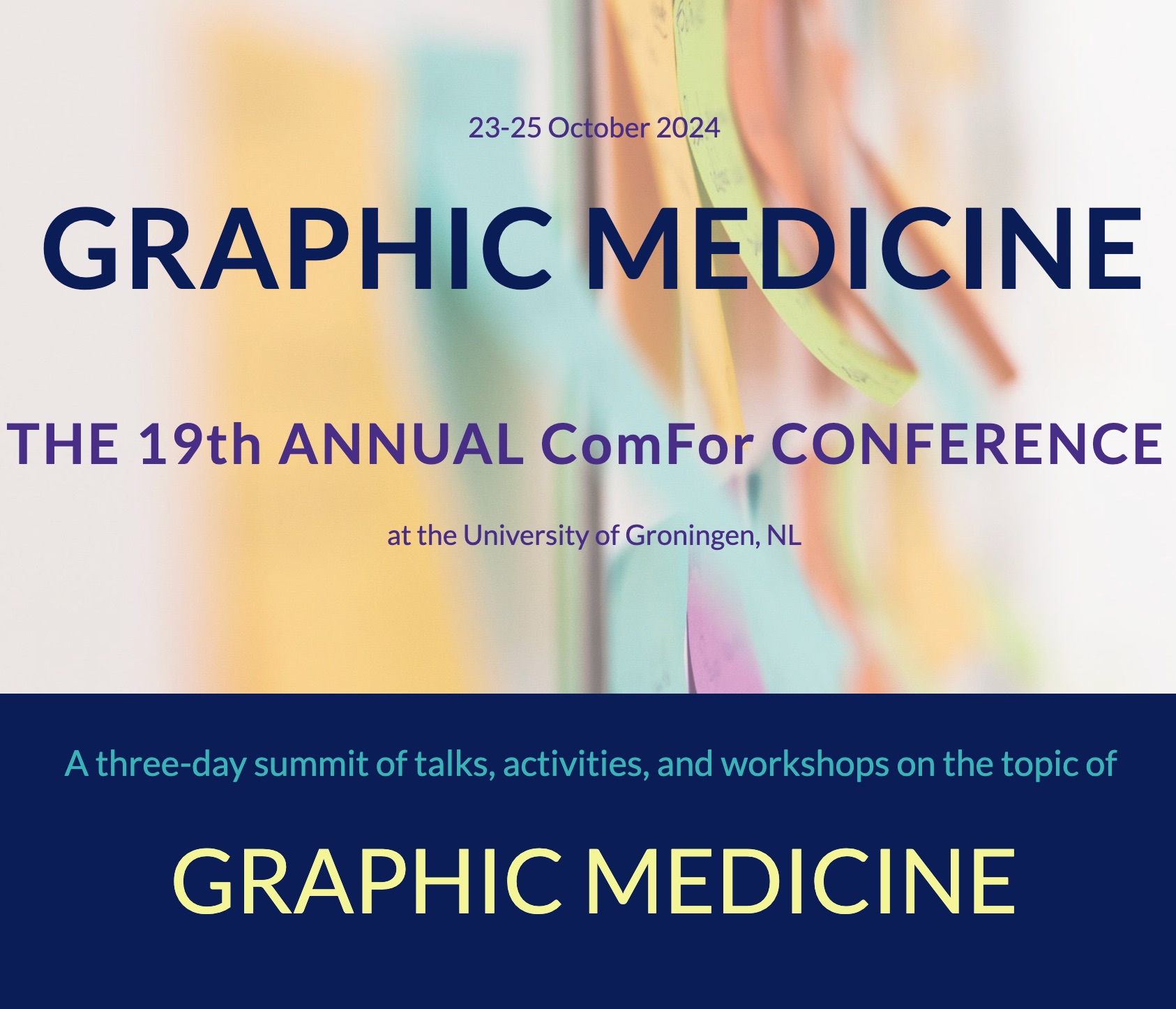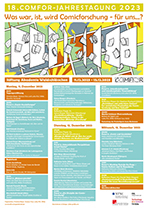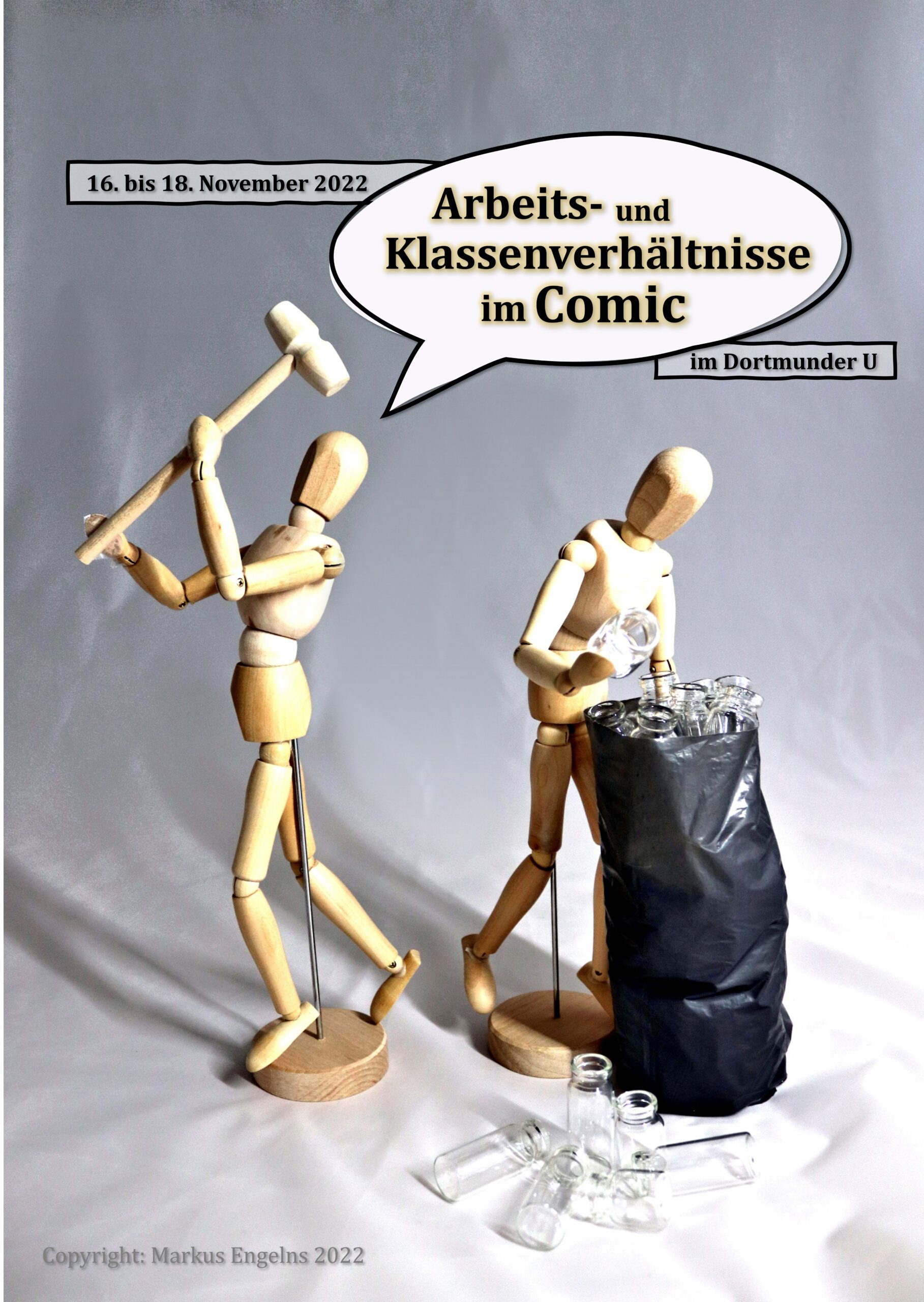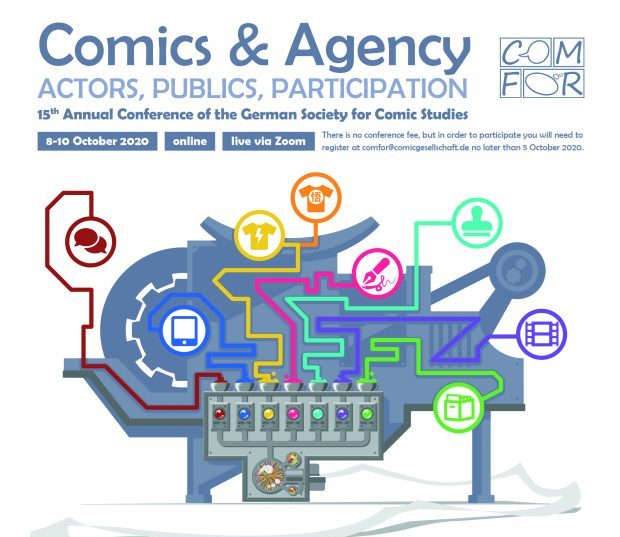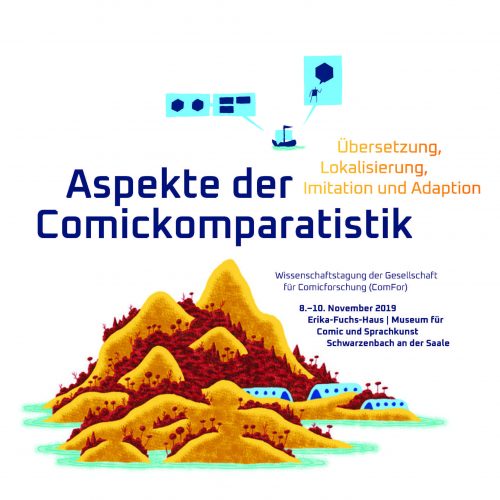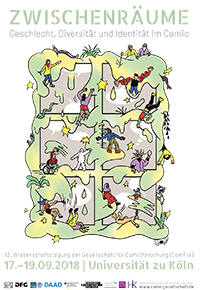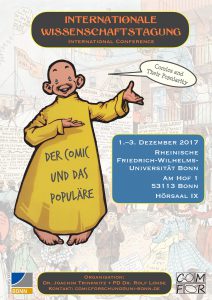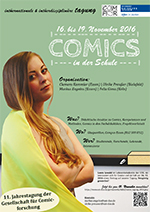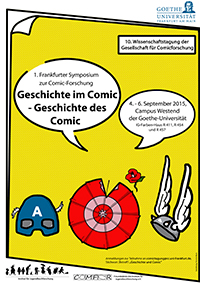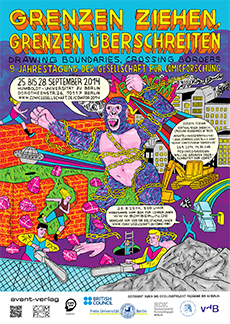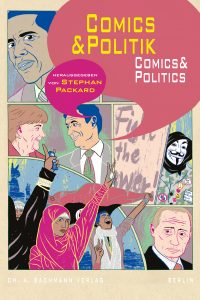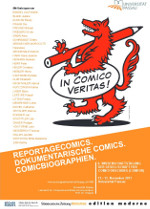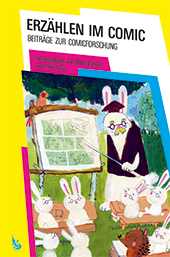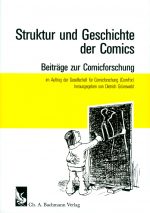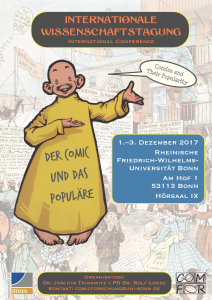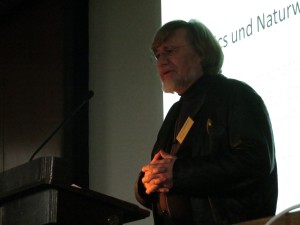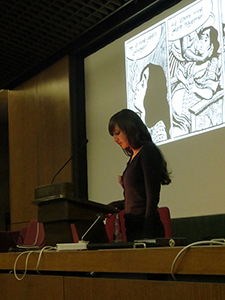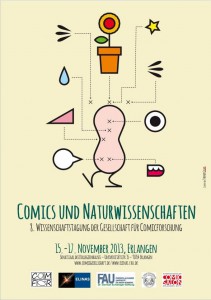 13th Annual Conference of the German Society for Comics Studies (ComFor):
13th Annual Conference of the German Society for Comics Studies (ComFor):
Spaces Between – Gender, Diversity and Identity in Comics
Illustration: Aisha Franz 2018
Continue to the Call for Papers
Continue to information about the Exhibition
Continue to information about Directions & Accomodation
Continue to the Flyer
Continue to the Registration
Conference Schedule:
| Monday, 17. September 2018 | |
| 10:30h | Meeting of the German Society for Comics Studies (ComFor) |
| 12:00h | Lunch Break |
| 13:00h | Welcome & Introduction |
| Conference Organisers | ComFor-Chair | Vice-Rectorate for Gender Equality and Diversity of the University of Cologne | |
| 13:30h | Artistic Lecture |
| Philip Crawford (Berlin, GER) | |
| My Noose Around That Pretty’s Neck (abstract) | |
| Chair: Barbara Margarethe Eggert | |
| 14:15h | Panel 1: Representations of Dis/Ability |
| Chair: Anne Waldschmidt | |
| Olga Tarapata (Köln, GER) | |
| Between Crooked Lines: Disability in E.T. Russian’s Feminist Comic Books (abstract) | |
| Natalie Veith (Frankfurt a.M., GER) | |
| Othering Voices and the Voice of the Other: The Depiction of Joseph Merrick in From Hell (abstract) |
|
| Jonas Neldner (Köln, GER) | |
| Noir Surrealism: The Hybrid Bodies of Charles Burns (abstract) | |
| 15:45h | Coffee Break |
| 16:15h | Panel 2: Graphic Medicine: Intersections of Comics, Health and Corporeality |
| Chair: Christina Maria Koch | |
| Susan Merrill Squier (Pennsylvania, USA) | |
| The Spaces Between: Negotiating Gender and Race in Transdisciplinary Comics Collaborations (abstract) | |
| Irmela Marei Krüger-Fürhoff (Berlin, GER) | |
| Telling and Showing Dis/Continuities: Comics on Dementia (abstract) | |
| Alexandra Alberda (Poole, UK) | |
| The Gaze, the Other and the Exhibit: Curating Graphic Medicine (abstract) | |
| 17:45h | Coffee Break |
| 18:30h | Keynote 1 |
| Tahneer Oksman (New York City, USA) | |
| An Art of Loss (abstract) | |
| Moderation: Véronique Sina | |
| 20:30h | Conference Dinner Haus Unkelbach (Luxemburger Str. 260 | 50937 Cologne) |
| Tuesday, 18. September 2018 | |
| 9:30h | Panel 3: Making Comics and Exhibiting their Physicality |
| Chair: Christine Gundermann | |
| Erin La Cour (Amsterdam | Utrecht, NL) | |
| No Longer In-Between: Towards a Social Abstraction in Comics Exhibitions (abstract) | |
| Ann Miller (Leicester, UK) | |
| The Nude and the Naked: from Fine Art to Comics (abstract) | |
| Katharina Brandl (Basel, CHE) | Anne Elizabeth Moore (Detroit, USA) | |
| Do What You Love, or: About Precarious Living and Working Conditions in the Comics Industry (abstract) | |
| 11:00h | Coffee Break |
| 11:30h | Panel 4: (Trans-)Cultural Identities |
| Chair: Laura Schlichting | |
| Anne Magnussen (Odense, DNK) | |
| Mexican Comics and the Revolution (abstract) | |
| Anna Nordenstam (Gothenburg, SWE) | Margareta Wallin Wictorin (Karlstad, SWE) | |
| Talking Back Strategies in Swedish Feminist Comics (abstract) | |
| Nina Mickwitz (London, UK) | |
| Precarity and the Gendered Migrant Body in Nina Bunjevac’s Heartless (abstract) |
|
| 13:00h | Lunch Break |
| 14:45h | Panel 5: (De-)Constructing Race and Ethnicity |
| Moderation: Marie Schröer | |
| Priscilla Layne (Chapel Hill, USA) | |
| Weyhe’s Postcolonial Approach to the Documentary Graphic Novel (abstract) | |
| Jonathan W. Gray (New York City, USA) | |
| Descendants of Kings and Queens: Black Panther and Entangled African Cosmopolitanism (abstract) | |
| Jaqueline Berndt (Stockholm, SWE) | |
| Destabilizing Gender but not Race? Effeminate Boys, Caucasian Appearances, and Uncertain ›Gutters‹ in (Shōjo) Manga (abstract) | |
| 16:15h | Coffee Break |
| 16:45h | Panel 6: Superheroes Revisited: Intersections of Gender and Genre |
| Chair: Stephan Packard | |
| Jeffrey Brown (Bowling Green, USA) | |
| Batman: Anchor for the Space Between (abstract) | |
| Ranthild Salzer (Wien, AUT) | |
| Objectifying the Male: Early Superhero Comics as Fantasies of Masculinity (abstract) | |
| Olivia Hicks (Dundee, UK) | |
| »No Place for Trespassers«: The Supercats and the British Superheroine (abstract) | |
| 18:15h | Coffee Break / Snack |
| 19:00h | Keynote 2 |
| Carolyn Cocca (New York City, USA) | |
| Reproducing Inequality and Representing Diversity: The Politics of Gender in Superhero Comics (abstract) | |
| Chair: Nina Heindl | |
| Wednesday, 19. September 2018 | |
| 9:00h | Panel 7: Structures of Power and Difference in Superhero Comics |
| Chair: Lukas R.A. Wilde | |
| Markus Engelns (Duisburg-Essen, GER) | |
| The ›Man of Tomorrow‹ as Copy Template – Male Hegemony and its Reproduction in Superhero Comics (abstract) | |
| Thomas P. Scholz (St. Louis, USA) | |
| Deconstructing the Superhero Genre: BDSM, Hypersexuality and Marshal Law (abstract) | |
| Juliane Blank (Saarbrücken, GER) | |
| Rethinking the World of a Female Superhero. Marvel’s Jessica Jones as an Example of a Gender-Sensitive Marvel Adaptation (abstract) | |
| 10:30h | Coffee Break |
| 11:00h | Panel 8: Queering Comics |
| Chair: Daniel Stein | |
| Frederik Byrn Køhlert (Norwich, UK) | |
| Queer as Style: Ariel Schrag’s High School Comic Chronicles (abstract) | |
| Romain Becker (Lyon, F) | |
| The Binary Comics of a Non-Binary Artist: How Vaughn Bodé’s Gender Structures his Work (abstract) | |
| José Alaniz (Seattle, USA) | |
| TranSiberia and Queer Comics in Russia (abstract) | |
| 12:30h | Lunch Break |
| 14:00h | Panel 9: Fluide Körper [German] |
| Chair: Ole Frahm | |
| Marina Rauchenbacher (Wien, AUT) | Katharina Serles (Dresden, GER) | |
| Gerahmt und zerstückelt. Zeichenhaftigkeit und Wahrnehmung von Körpern in Comics (abstract) | |
| Anna Beckmann (Berlin, GER) | |
| Strategien der Ambivalenzen – Uneindeutige Geschlechteridentitäten im Comic (abstract) | |
| Daniela Kaufmann (Graz, AUT) | |
| Color Change & Gender Fluidity. Zur Korrelation von Farbe und Geschlecht bei George Herrimans Krazy Kat (abstract) |
|
| 15:30h | Coffee Break |
| 16:00h | Panel 10: Alternative Comics und Feminismus [German] |
| Moderation: Markus Streb | |
| Sylvia Kesper-Biermann (Hamburg, GER) | |
| »…denkt lieber mal nach, wie das so zu Hause bei euch läuft«. Geschlechterverhältnisse in Alternativ-Comics der 1970er Jahre (abstract) | |
| Kalina Kupczynska (Łódź, PL) | |
| BLUT, oder: Gender und Nationalität im polnischen Comic (abstract) | |
| Sophie Bürgi (Basel, CHE) | |
| »Common scents«: Geruchsregime und affektive Zwischenräume in Lynda Barrys Comic One! Hundred! Demons! (abstract) |
|
| 17:30h | Concluding Discussion |
| Chair: Nina Heindl | Véronique Sina | |
Social Media
twitter.com/comicforschung
#ComFor 2018
facebook.com/gesellschaft.fuer.comicforschung
Conception
Christine Gundermann (University of Cologne | Department of History)
Nina Heindl (University of Cologne | a.r.t.e.s. Graduate School for the Humanities Cologne)
Véronique Sina (University of Cologne | Department of Media Culture and Theatre)
Conference organisation
Nina Heindl (University of Cologne | a.r.t.e.s. Graduate School for the Humanities Cologne)
Véronique Sina (University of Cologne | Department of Media Culture and Theatre)
The conference organisers are supported by
Bettina Begner, Stephan Böhm, Jan Harms, Yasmin Neuhaus, Anja Pflugfelder, Michaele Pollich, Jacqueline Rehse, Lukas Respondek, Elea Thieser, Alina Valjent, Elsa Weiland, Lies Weimer, and Philin Zwirner.
Exhibition organisation
Organisation of the exhibition “Comics and Disability Studies”:
Véronique Sina (University of Cologne | Department of Media Culture and Theatre)
Organisation of the exhibition “SuperQueeroes. Unsere LGBTI*-Comic-Held_innen”:
Christine Gundermann (University of Cologne | Department of History)
Contact:
Registration:
Attendants are kindly asked to register until August 31st 2018 at comfortagung2018@gmail.com
The conference fee will be:
35 € for professors and postdocs
25 € for PhD-students and ComFor-members
15 € for students.
Please transfer the conference fee to our account (see below) no later than September 3rd 2018 (received payment!).
– closed –
The conference is being sponsored by: DFG, German Research Foundation | Finanzfonds der Universität zu Köln zur Umsetzung des gesetzlichen Gleichstellungsauftrags | | the equal rights commissioner of the Faculty of Arts and Humanities at the University of Cologne | the German Academic Exchange Service (DAAD) funded by the Federal Ministry of Education and Research (BMBF) | MedienStiftung Kultur | a.r.t.e.s. Graduate School for the Humanities Cologne | Department of Media Culture and Theatre, University of Cologne .
